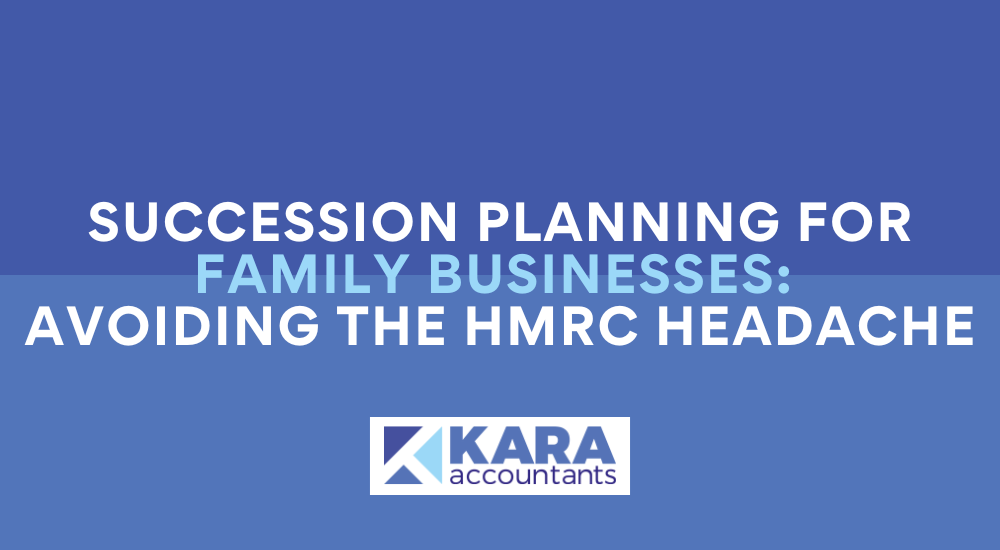
Succession Planning for Family Businesses: Avoiding the HMRC Headache
Family businesses are the backbone of the UK economy but passing them on can be complicated. Without early planning, inheritance tax (IHT), capital gains tax (CGT), and ownership disputes can turn a proud legacy into an expensive headache. Here’s how you can prepare to make a smooth transition.
1. Start Sooner Than You Think
Succession planning isn’t just about retirement. Illness or unexpected events can force a quick handover. Begin discussions years in advance so you have time to put tax-efficient structures in place.
2. Understand Key Tax Reliefs
Two HMRC reliefs are critical:
- Business Property Relief (BPR) – Up to 100% relief from IHT on qualifying shares or business assets.
- Entrepreneurs’ Relief (now Business Asset Disposal Relief) – Reduces CGT to 10% when selling all or part of the business, if conditions are met.
A qualified accountant can confirm eligibility and ensure the business is structured correctly to claim these reliefs.
3. Get the Structure Right
Consider whether a limited company, partnership, or trust best suits the future. Trusts can help manage generational ownership and protect assets from personal liabilities, but they need careful tax planning.
4. Formalise the Plan
Create a written succession plan that covers:
- Who will lead the business.
- Ownership transfers and voting rights.
- Timelines for handover.
- Contingency plans if a successor can’t take over.
Having everything documented reduces family conflict and reassures employees and lenders.
5. Keep the Next Generation Involved
Training successors early builds confidence and continuity. Encourage them to understand operations, finances, and key relationships before taking the reins.
6. Review Regularly
Tax laws and family circumstances change. Revisit your plan every few years to stay compliant and efficient.
How an Accountant Can Help
A good accountant does more than crunch numbers. We coordinate with solicitors and financial planners to create a clear roadmap, minimising tax, protecting assets, and ensuring a smooth transition.
Early, proactive planning keeps your business in the family without giving HMRC an unnecessary slice.

This Post Has 0 Comments